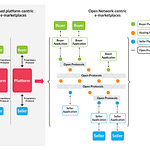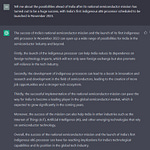Cyberpolitik: A Recurring Payments Nightmare
— Bharath Reddy
Have you tried to make a recurring card payment to a foreign merchant only to find that your card gets declined? This is not an issue with the card being maxed out; most international payments using Indian credit or debit cards don’t work because merchants find it too cumbersome to comply with India-specific regulations.
The Reserve Bank of India (RBI) mandated that from October 1st, 2021, for every recurring transaction below ₹5,000, banks must send a notification at least 24 hours before the renewal date. For amounts over ₹5,000, banks require a one-time password to authorise every transaction. The transaction mandate continues to be a recurring nightmare a year and a half since its introduction. While all recurring transactions faced severe disruptions initially, banks resolved the teething issues, and domestic payments worked after a few months. However, international payments continue to face issues. Publishing an impact assessment study and holding stakeholder consultations could have helped anticipate some problems beforehand. But since these mandates have already been implemented, some exemptions must be made so international payments can be functional again.
Exiting from subscriptions is often deliberately complicated, and people often remain subscribed to services they don’t use. Free trial periods sometimes turn into indefinite subscriptions when users forget to cancel. RBI’s mandate aimed to help customers keep track of their subscriptions and exit unwanted ones. However, implementing these requirements requires coordination across the value chain of consumers, banks, mandate processing platforms, payment aggregators, and merchants. This coordination has not been seamless, and the fallout has caused much pain to businesses and consumers.
The most significant impact has been on businesses whose subscription revenue dried up. Despite the adequate notice given by the RBI, companies, both big and small, had little recourse. The list included OTT platforms, news organisations, non-profits, cloud service providers, and many others. The most significant impact has been on small bootstrapped businesses, which depend on revenue from subscriptions for their day-to-day operations. An additional burden for small subscription-based businesses is the effort that now goes towards manually processing the payments for what was once an automated process.
The mandate also creates hurdles for Indians who subscribe to global content and services. Most international merchants do not comply with RBI’s regulations. In response to queries about declined payments from Indian subscribers, The New York Times has recommended using a valid US credit card for payments! International merchants with a significant Indian customer base might now start supporting UPI. Some might have a mobile app through which one can subscribe, but that would attract a 30% markup due to the commissions charged by Apple or Google. However, for most others, customers have no option. Such hurdles in transacting with global merchants limit customer choice and hinder the ease of doing business. During the transition period, individuals and organisations had to deal with the overhead of manually paying for subscriptions. To date, this continues to be a burden for international subscriptions or for transactions above the threshold for which a one-time password is required for each renewal. The threshold, however, has subsequently been revised to ₹15,000, which has eased some of the burdens.
Before the mandate, there were problems with opting out of subscriptions in some situations, but it worked for most people. The impact of the mandates is unknown, but it has imposed concentrated costs on many businesses and consumers. Holding open consultations and inviting stakeholder comments can help anticipate most of these consequences. Publishing an impact assessment report also helps to build a consensus on the scope of the problem, the costs and benefits involved, and evaluate the impact of the policy.
Since this involves multiple stakeholders across the value chain, coordination has been a challenge. Lower-cost interventions, such as requiring banks to provide consumers with the ability to view and manage their subscriptions, might have also addressed the issue without as many disruptions. However, it’s worth considering whether this is the RBI’s responsibility. As Andy Mukherjee says, “lopsided buyer-seller relationships are a consumer protection problem. The job of a central bank is to provide a well-oiled payment system while safeguarding the integrity of the financial network from money launderers, terrorists, scammers, and hackers. Its targets should not include Netflix Inc. or the New York Times”.
It is unlikely that international merchants without a significantly large Indian customer base will take on the burden of complying with the mandates. It can get quite complex to comply with different regulatory requirements across geographies for the same payment service. Standards that have evolved might not be the most foolproof solution, but they are based on a consensus and ensure seamless interoperability. Given that these mandates have already been implemented across the country, RBI must create an exemption to ensure that international transactions can continue.
Biopolitik: Growing US-China Competition in Biotechnology
— Saurabh Todi
During his remarks at the Special Competitive Studies Project Global Emerging Technologies Summit in February 2021, US NSA Jake Sullivan expressed concern about the potential risks associated with biotechnology. He stated that while biotechnology holds great promise for advancing science and medicine, it also enables the possibility of accidental or intentional misuse. Sullivan further emphasised the need for the responsible and ethical development of biotechnology, including robust regulatory frameworks and international cooperation to prevent the proliferation of dangerous biotechnology. He also called for increased investment in research and development to ensure that the US remained at the forefront of biotechnology innovation.
These remarks indicated the seriousness with which the United States wants to maintain its biotechnology dominance vis-à-vis China. The US President, in September 2021, issued an Executive Order on Advancing Biotechnology and Biomanufacturing Innovation. The order aims to promote innovation and growth in the biotechnology and biomanufacturing industries. It established a national strategy for biotechnology research and development and initiatives to increase access to funding and support for small and disadvantaged businesses in the field. The order also aims to strengthen the biomanufacturing supply chain and promote collaboration between industry, government, and academic institutions to advance research and development in biotechnology. In September 2022, The United States government announced $2 billion in new investments and resources to advance its National Biotechnology and Biomanufacturing Initiative. The investment includes $1.5 billion in funding for research and development, including establishing seven new biomanufacturing institutes across the US. The remaining $500 million will be used to create public-private partnerships to help support the development of new biotechnology products and solutions.
More recently, The US Department of Commerce added several units of Chinese genomics company BGI to its trade blacklist, citing concerns about their alleged ties to the Chinese military and its role in human rights abuses. The move follows earlier restrictions on BGI due to concerns about potential national security risks. The US government has expressed concerns about the Chinese government’s ability to access sensitive personal data collected by companies like BGI, as well as the potential for these companies to use their technologies for military or strategic purposes. The trade blacklist restricts US companies and organisations from exporting certain technologies to the listed companies without a licence from the US government.
These steps seem to align with this report in the New York Times, which indicated last year that the Biden administration is mulling further export controls that would clamp down on China’s ability to access cutting-edge technologies. Just as US-China competition in semiconductors got accelerated due to sanctions imposed by the US, there is a possibility that similar export-control restrictions could be imposed on high-tech biotechnology. The new biotech competition is something to keep an eye on.
Antariksh Matters: Setting your watch to Moon Time
— Aditya Ramanathan
Over the last couple of weeks, even casual followers of outer space news likely came across stories about scientists calling for a standard time for the Moon.
Comments from Pietro Giordano, an engineer at the European Space Agency, prompted the most recent spurt of stories. However, discussions began in earnest at least a year ago. More importantly, the need to agree upon a time-keeping standard is implicit in the ambitious plans that states and private enterprises have outlined for the Moon.
GPS for the Moon
The most ambitious plans for lunar exploration come from the United States, led by its Artemis Program, which looks to create a sustained human presence on the Moon and use it as a springboard for the exploration of Mars. We’ve discussed Artemis and the governance problems it creates in previous editions of this newsletter. What is clear, however, is that Artemis, as well as other more modest programmes outlined by the Europeans, Japan, China, and Russia, would benefit from a reliable lunar navigation, timing and communications infrastructure. In theory, at least, such a system would greatly increase our ability to dispatch crewed and uncrewed missions to the far side of the Moon and the lunar South Pole. It would also be crucial to the planned Lunar Gateway, a US-led project to establish a space station orbiting the Moon. Another project that would need lunar satellite-based support is the European Large Logistics Lander, which is meant to provide uncrewed logistics support to Artemis missions.
The American space agency, NASA, is already pursuing what it calls the Lunar Communications Relay and Navigation Systems or LCRNS. As the name suggests, LCRNS is an effort to put a smaller version of the Earth-bound GPS and communications satellites into lunar orbit. The ESA has a similar project of its own, dubbed Moonlight. Together they form what’s called LunaNet, which, according to NASA, is meant to offer a “set of standards that can enable an open, evolving, cooperative lunar communications and navigation architecture”.
Who Sets the Clocks?
Earth-bound Global Navigation Satellite Systems such as GPS, the European Galileo, China’s BeiDou, and India’s NavIC use onboard atomic clocks and radio signals to determine positions. While accurate timing is an inherent function of any such orbital navigation system, what’s undecided is how to set a time standard for the Moon.
The obvious option is to link lunar time to Earth time. The International Space Station uses Universal Coordinated Time or UTC, essentially the same as Greenwich Mean Time or GMT and is maintained by the Bureau International de Poids et Mesures in Paris, with the help of an array of atomic clocks. The challenge with linking Moon time with Earth time is the effects of gravity. Because the Moon has only 16.6% of Earth’s gravity, it gains about 56 microseconds per Earth day. While such time discrepancies mean little in our daily lives, they can create complications for susceptible systems like satellite navigation.
Ultimately, the business of keeping time on the Moon is both technical and political. Giordano’s call to create a time-keeping standard is evidence that there’s real value to the complexities and drudgery of multilateral lunar governance that draws in all major players, including China, Russia, and India. The US-led Artemis Program and Artemis Accords are no substitutes for formal laws, agreements, and treaties.
Our Reading Menu
[Book] Great Power Politics in the Fourth Industrial Revolution by Glenn Diesen
[Article] Defining the scope of AI regulations by Jonas Schuett
[Discussion Document] Strengthening research, promoting innovation through richer collaboration by Shambhavi Naik









